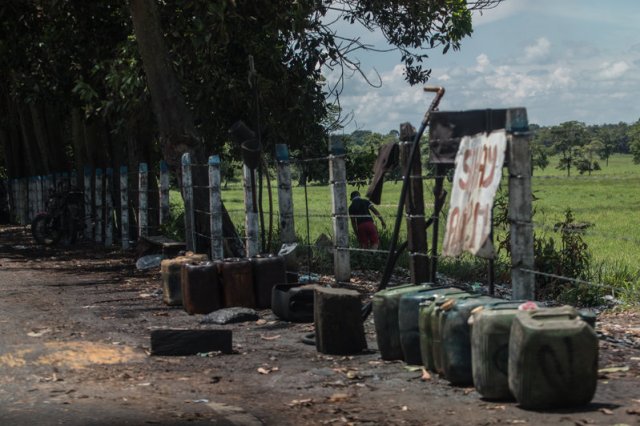
Photo by: Iván Valencia – Bloomberg via Getty.
Venezuela’s worst economic meltdown in history has had a huge impact on neighboring Colombia, where hospitals, schools and welfare agencies are dealing with 2 million Venezuelan refugees. But the crisis has produced at least one silver lining for Colombia: the curtailing of gasoline smuggling.
By NPR – John Otis
For decades, Colombian motorists along the border eschewed gas stations to fill their tanks with cheaper, smuggled Venezuelan fuel. The practice gave rise to powerful smuggling mafias while local governments lost out on gasoline taxes.
Now, however, Venezuela’s oil industry has collapsed. Many of its refineries have shut down while the government’s lack of cash to import gasoline, combined with U.S. sanctions targeting the oil sector, have led to chronic fuel shortages. That means Venezuelans now pay as much as $10 a gallon on the black market and that there’s no more cheap fuel left to resell in Colombia.
“The business has totally died,” says José López, a former fuel smuggler in the Colombian border city of Cúcuta who now runs a car wash.
Gasoline smuggling here took off in the 1970s when the Arab oil embargo led to a spike in gas prices in much of the world, including Colombia. By contrast, Venezuela, which is home to the world’s largest oil reserves, kept prices artificially low with heavy government subsidies. Filling a car tank cost pennies.
As a result, smugglers made huge profits by reselling gas in Colombia. Often, they would fill up cars and trucks at Venezuelan service stations then drive to Colombia and siphon the fuel into storage tanks. Smugglers also used dozens of clandestine trails, hauling fuel across the border on motorcycles, bicycles, mules and handcarts. Then, like moonshiners, they would sell it out of plastic jugs from garages, in back alleys and along highways.
Contraband gas provided jobs to poor families on both sides of the border. But it also swelled the coffers of Colombian guerrillas and drug-trafficking groups that were involved in the business, says Victor Bautista, the top border official in Colombia’s Norte de Santander department, which abuts Venezuela.
…
Read more: NPR – Venezuela’s Fuel Shortage Upends Longtime Colombian Border Gas Smuggling Trade
…

